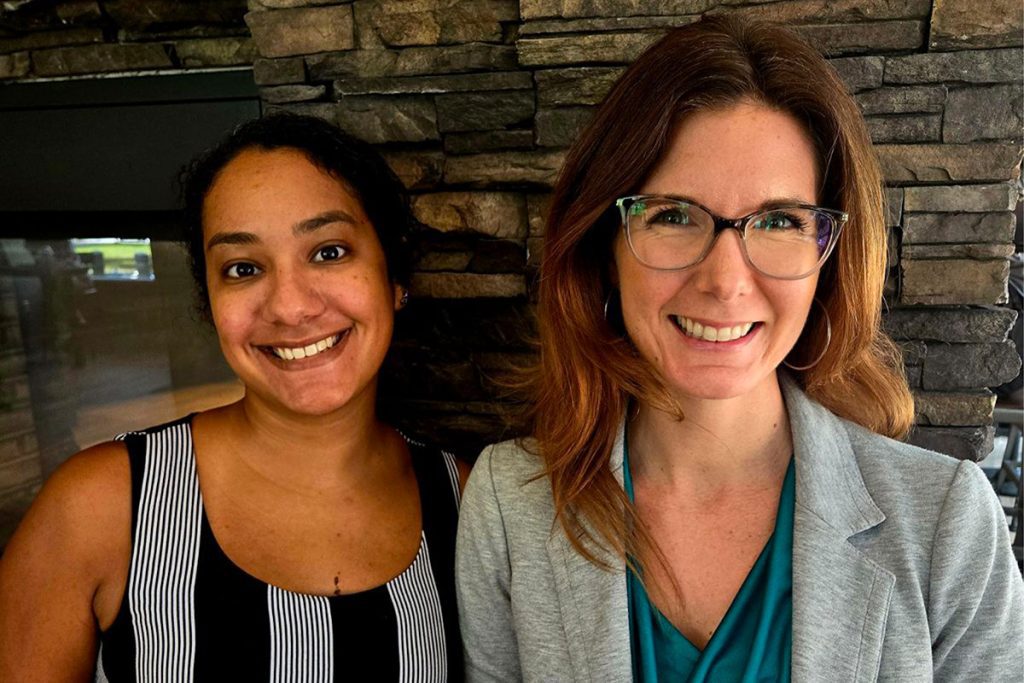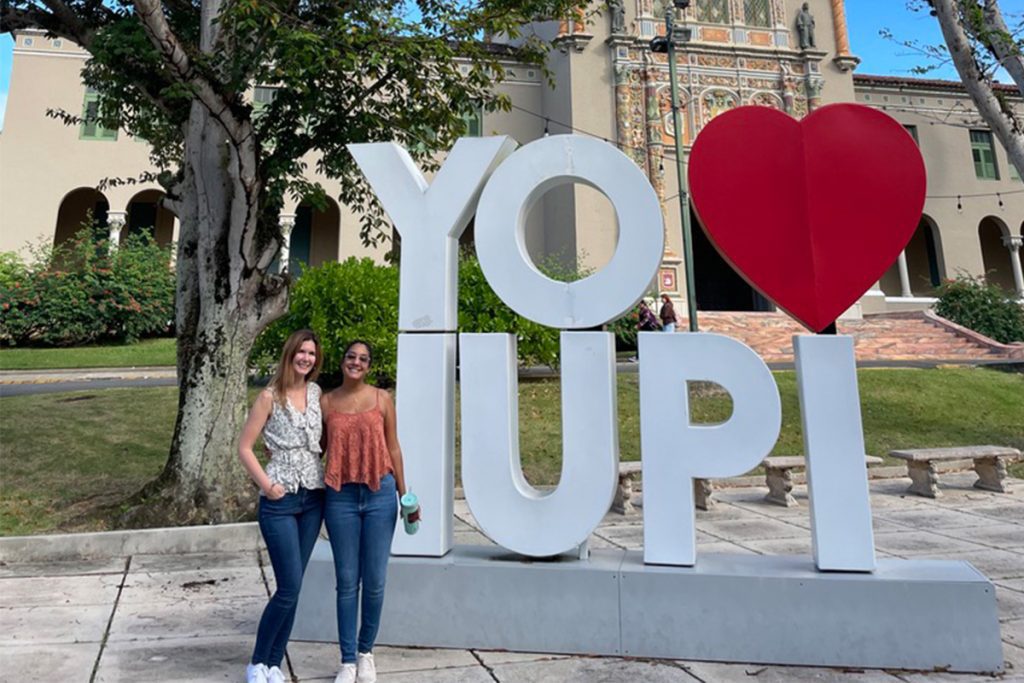Chemistry Researchers Advance Universal Design for Learning in STEM Courses
Focus on Bilingual approaches through National Science Foundation grant expand accessibility for learning across diverse student groups
By: Emily Dougherty I October 4, 2024

Dr. Erin Saitta, Assistant Professor in the UCF Department of Chemistry, and doctoral student (Chemistry), Kathleen Lugo Charriez, have recognized the array of difficulties that undergraduate chemistry and other STEM students encounter as they work toward achieving their educational goals.
Saitta and Charriez have teamed up on a research project, as part of a National Science Foundation Improving Undergraduate Stem Education grant, to remove barriers to the learning experience for students. This work is in collaboration with Co-Principal Investigators, Dr. Jacquelyn Chini from The Ohio State University and Dr. Erin Scanlon from the University of Connecticut.
According to the National Science Foundation and Ahlam Lee, Associate Professor of Psychology at Xavier University, 20 percent of postsecondary science and engineering students identify as having a disability. Additionally, underrepresented groups and students from low-income backgrounds may have specific learning needs or face other barriers to learning. UCF is a Hispanic Serving Institution and currently has efforts underway to enhance accessibility within courses.
According to Saitta, an important but often overlooked aspect of course development is appropriate training for graduate teaching assistants (GTA), including accommodations for certain needs of students. Given their teaching and grading scope of work, she shares that GTAs are well-situated to understand, develop, and deploy meaningful activities and processes to make the classroom more inclusive.
Saitta explained that after training GTAs for fifteen years, this was a prime opportunity for efficiency and improvement in enhancing student learning.
“I previously worked on a research project that showed how GTA training activities can have measurable impacts in the classroom,” Saitta says. “At the same time, I became more involved with helping science faculty understand the Universal Design for Learning (UDL) framework and how to enact those practices in their teaching.”
Saitta and Charriez’s research is focused on neurodivergent, physical, and mental health disorders and the challenges these students face every day when learning, and how instructors can accommodate these needs through proper training videos.
“The framework focuses on a proactive approach to designing for access rather than exclusively reacting to student needs on a case-by-case basis.” Saitta says.
Charriez has added perspective to this project as a bilingual graduate student and former GTA, sharing their working concept of UDL to a broad, diverse audience of students.
“I was eager for Kathleen Lugo Charriez to apply her unique perspective to this work,” Saitta says. “The bilingual approach we have added is very much a product of her vision, and I am honored to collaborate with her to bring that to fruition.”
Charriez says that her deep connection with her Hispanic culture inspired her to make this training bilingual for English and Spanish speakers.
“I believe in the transformative power of education to create equitable opportunities for all students,” Charriez says. “This project highlights the importance of accessible learning environments while fostering a sense of belonging for all learners. It’s a fulfilling opportunity for me to contribute in this way and honor my Hispanic heritage.”

Saitta says the model is unique to GTAs’ prior experiences with training.
“To our knowledge, this is the first video-based training designed to feature chemistry GTAs in authentic teaching environments implementing UDL-aligned practices for the purpose of GTA training,” Saitta says. “Previous research has shown that STEM instructors often have difficulty envisioning how to implement certain inclusive practices in their own class settings, such as a chemistry laboratory. The videos help to model possible teaching approaches and prompt helpful discussions during GTA training meetings.”
Initiatives like this are enhancing innovation in STEM courses at UCF. Additionally, the University of Texas El Paso and Charriez’s former institutions, Florida International University and the University Puerto Rico Rio Piedras, have already adopted this training and are adjusting it based on institutional needs.
“All four universities are rolling out the first round of training this semester. We are working directly with facilitators at each institution to customize the implementation to fit the needs and goals of their GTA training,” Saitta says.
Charriez hopes to see this training in more higher educational environments.
“I hope to inspire other educators and institutions to adopt similar approaches, creating a ripple effect that fosters greater inclusion,” Charriez says. “This research can empower students from all backgrounds, helping them to thrive academically and feel a genuine sense of belonging in their learning environments.”
